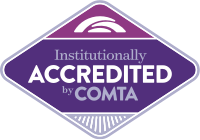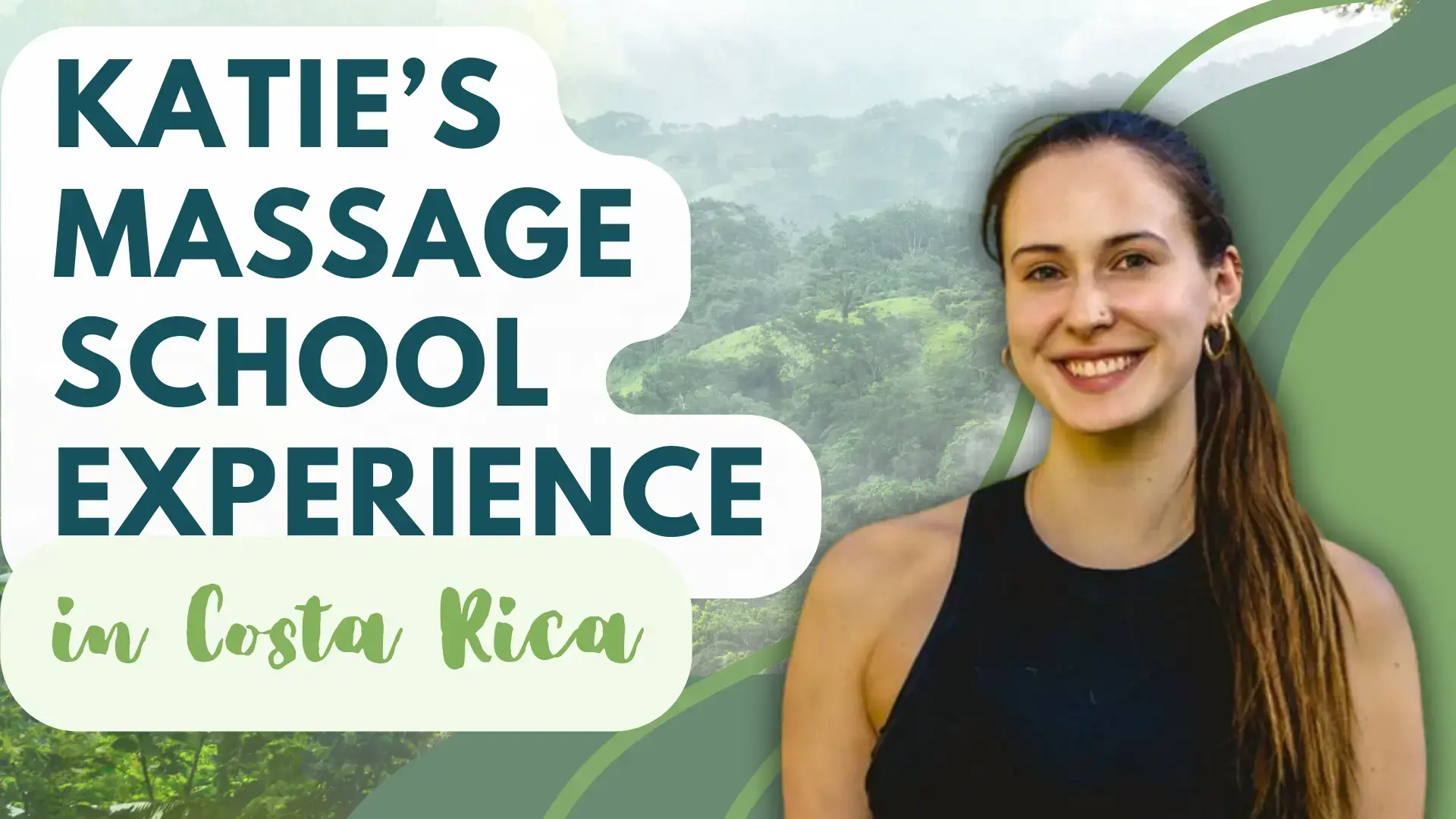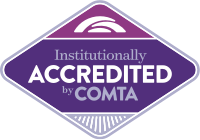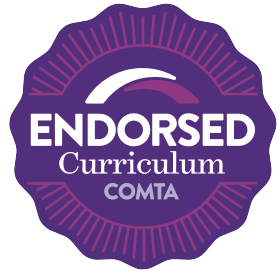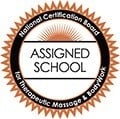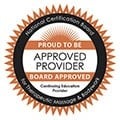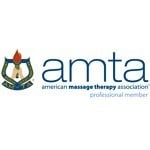Massage Therapy Curriculum
The Costa Rica School of Massage Therapy is the premier study abroad program in the world Accelerated for Massage Therapy Programs!
Students receive an exceptional education that equips them to excel in the massage therapy industry. The comprehensive CRSMT curriculum not only provides a solid foundation of knowledge but also hones advanced skills, empowering students to confidently offer personalized therapeutic massage treatments that effectively address a wide range of needs, from relaxation to sports-related injuries. Graduates of the CRSMT massage training programs possess the qualifications necessary for licensing in the majority of the United States and numerous other locations worldwide.
Comprehensive Curriculum
Accelerated Programs
Our 600 to 800-hour accelerated massage therapy curriculum provides a deep understanding of the human body and therapeutic techniques. Starting with anatomy and physiology, students gain essential knowledge of body functions. We then delve into kinesiology to learn about movement mechanics, enhancing client mobility and comfort.
Students master Western massage techniques, including therapeutic relaxation, deep tissue, myofascial release, trigger point therapy, and positional release. Practical training is emphasized, ensuring proficiency in personalized massage therapies.
Hands-on experience in our student clinic during the 2nd, 3rd, and 4th quarters allows students to refine techniques, develop interpersonal skills, and build confidence under instructor supervision.
Our curriculum also covers pathology, ethics, and business skills, preparing graduates to navigate the professional landscape, adhere to ethical standards, and manage or start their own practices.
We include craniosacral therapy to expand students' therapeutic skills, promoting overall health and balance through gentle touch.
In the final phase, students undergo board preparation for the MBLEx national licensing exam, with review sessions, practice tests, and study strategies ensuring readiness for certification.
Our program offers flexibility to meet diverse state licensing requirements, with options to extend education to 625, 640, 660, 700, 725, 750, or 800 hours. This adaptability allows students to tailor their education, fulfilling state criteria and gaining a competitive edge in their careers.
Course Descriptions
Anatomy & Physiology – 55 hours
Students complete an intensive study of the systems, organization, structures, and functions of the human body relevant to multiple manual therapy practices. This course provides the anatomy and physiology knowledge needed for clinical decision-making in the practice of various manual therapies and for communication with other health care professionals.
Western Techniques I – 75 hours
Students are introduced to massage through a review of its history as well as an examination of the benefits and effects of massage. Through lecture, demonstration, and hands-on practice students attain competency in delivering a full body massage utilizing traditional strokes including gliding, kneading, percussion, friction, and vibration. Body mechanics, ergonomics, injury prevention, and healthy self-care techniques that focus on longevity, effectiveness, and career fulfillment are presented and practiced. Students are introduced to posture and movement pattern analysis with strong consideration of how the effects of gravity, compensatory patterns, and emotional and mental trauma can influence posture in themselves and their clients. Additional topics of study and emphasis include professional and legal standards for hygiene and physical safety, massage therapy research methodology and results, client communications, endangerment sites, contraindications to massage, proper draping techniques, session documentation, and sexual misconduct. This class also includes a survey of various bodywork modalities and an exploration of alternative, complementary, and holistic therapies.
Kinesiology I – 40 hours & Kinesiology II – 40 hours
Students will gain an in-depth understanding of the skeletal, muscular, and articular systems of the human body. Through lecture, palpation, and various kinesthetic activities students will be able to describe the name and location of bones, bony landmarks, ligaments as well as the attachment sites and actions of muscles. Students will be able to locate the structures both on a skeleton and on the human body.
Health and Wellness for the Massage Therapist – 12.5 hours
Students learn a holistic approach to lifestyle and self-care practices. A holistic wellness model is discussed and students are encouraged and given tools to develop and implement self-care regimens with the goal of wellness as well as career fulfillment and longevity. Movement therapies and fitness are explored and practiced.
Professional Inventory – 5 hours
Students begin to explore why they want to be a massage therapist, and what responsibilities come with the profession. Students participate in mental and physical exercises to encourage exploration of goals, and intentions with regard to their new career.
Western Techniques II – 45 hours
Students are introduced to trigger point therapy as well as myofascial release theory and techniques. They learn how to identify and treat neuromuscular pain cycles and common postural imbalances. Class time includes hands-on practice integrating these new techniques into a therapeutic treatment that focuses on postural correction and pain reduction.
Kinesiology III – 20 hours
This course includes additional study of muscle physiology, posture, and movement. Students learn and practice client assessment techniques using the HOPRS protocol as well as advanced stretching techniques. Emphasis is on developing comprehensive plans of care including assessment, treatment, and client self-care. The class also covers connective tissue injury assessment and treatment for the forearm, ankle, and knee.
Western Techniques III – 60 hours
Students are introduced to advanced western massage techniques with an emphasis on assessment and focused work for specific areas of common pain/dysfunction such as the neck, shoulder girdle, and lower back. The class also covers connective tissue injury assessment and treatment for the ankle and the knee. Class time includes hands-on practice integrating all of the specific techniques they have learned into a comprehensive and therapeutic treatment that is specifically tailored to meet an individual client’s specific needs. The class also covers advanced draping techniques, aspects of working with special populations, as well as dealing with difficult and challenging client situations. Additional self-care techniques for the massage therapist are presented and practiced.
Ethics and Communication – 30 hours
This course involves the study of substantive aspects of ethics and professionalism that are critical to the success and longevity of the massage therapy profession and practitioner. Students are introduced to concepts and conditions relating to the emotional and psychological aspects of bodywork. They learn to recognize indicators of emotional and or mental stress in their clients as well as themselves, understand the emotional and psychological contraindications for massage, and respond professionally and appropriately to these situations. There is a strong emphasis on diplomatic, thoughtful, and creative communication skills with regard to interacting with clients and dealing with challenging situations. Case profiles and other experiential exercises are used to demonstrate ethical principals and communication skills.
Hydrotherapy – 25 hours
Students are introduced to hydrotherapy and its effects on the body. They learn and practice the proper application of a variety of specific treatments as well as identify the indications, contraindications, and considerations for hydrotherapy applications.
Pathology – 40 hours
Students are introduced to the study of human disease, and begin to gain an understanding of the body’s response to aging, trauma, and disease. Students begin to recognize common pathologies in their clients and will develop the skills to determine if massage is indicated or contraindicated and whether referral to other health care practitioners is appropriate. Students will gain a deeper understanding of the medical model and the importance for communication with their client and other medical professionals providing care to the client.
Rock Tape – 7.5 hours
Students are introduced to the concept of movement therapy and enhancement via functional taping methods. It includes a review of the current literature supporting the theory of kinesiology taping for the purposes of rehabilitation, edema/swelling management, neuropathic pain, scar mobility, and postural management.
CranioSacral Therapy – 30 hours
Students are introduced to the technical as well as the tactical applications of CranioSacral Therapy. The class details the anatomical infrastructure of the CranioSacral system and the rhythms generated by it. Students have class time to explore their awareness as a therapist and as a client. Students have the ability to discuss as well as describe the similarities and differences of both the mechanical and dynamic side of CranioSacral work. We venture into the fluid nature of multi-therapist sessions in the waters of the Pacific Ocean. The class focuses on clinical application, personal integration, and refining palpation.
Business Development – 20 hours
This class covers business topics in the context of preparing a basic business plan. Students research licensing requirements and create business and marketing materials they can use in their practice.
Clinical Practicum – 75 hours
Students provide massage therapy to the general public in a supervised professional clinic setting. Client interview, treatment session documentation (SOAP Charting), client assessment with regard to pathologies, soft tissue dysfunction, and contraindications, and treatment planning skills are cultivated. Students also provide massage therapy to the general public via a supervised community service event.
Board Preparation – 20 hours
This class prepares students to take the State Massage Therapy Boards Licensing Exam (MBLEx). Through class discussions, lectures, and practice exams, the class thoroughly explores the exam. Students practice strategies for analysis of exam questions and problem solving of each type of question and learn how to study and review for the exam. Time is also devoted to care and maintenance of professional equipment and stress management.
700 Hour Program: Core plus Asian Bodywork Modalities
700 Hour Curriculum includes all of the above plus the following course:
100 Hours Asian Modalities
- 60 Hours of Shiatsu & Traditional Chinese Medicine
- 40 Hours of Thai Massage
In this immersion course, participants learn how to perform two types of Asian bodywork, shiatsu from Japan and Thai massage from Thailand, which are based on balancing energetic systems of the body. To give participants a solid foundation of knowledge in support the hands-on skills learned, the history of these modalities are presented, along with traditional Chinese medicine, including Qi, Yin Yang theory, Five Element theory, channels (meridians), tsubo, as well as principles of traditional Thai medicine. Participants learn the benefits, indications, contraindications, and assessments for shiatsu and Thai massage. They also learn proper application of palming, finger and thumbing techniques, elbow and forearm techniques, stretching, joint mobilization, and foot techniques with the use of effective and efficient body mechanics. Warm-up, centering, and focusing methods are emphasized as well as postural awareness. After the class, students are able to perform traditional shiatsu and Thai massage treatments on a mat on the floor.
Students may choose the full 100-hour Asian modalities certificate program, only Shiatsu and Traditional Chinese Medicine for 660 hours, or only Thai Massage for 640 hours.
725 Hour Program: Clinical Internship
725 Hour Curriculum includes all of the above plus the following course:
Clinical Internship – 25 hours
An extension of the Clinical Practicum. Students continue their clinical experience by providing massage therapy to the general public mocking a day-to-day clinical practice over the course of a week. Client interview, treatment session documentation (SOAP Charting), client assessment with regard to pathologies, soft tissue dysfunction, and contraindications, and treatment planning skills are cultivated.
750 Hour Program: Clinical Internship and Advanced Hydrotherapy Techniques
750 Hour Curriculum includes all of the above plus the following courses:
Advanced Hydrotherapy Techniques – 25 hours
Students are introduced to advanced hydrotherapy techniques typical of the spa setting. Through hands-on instruction students attain competency in performing body wraps, hot stone massage, and facial massage. Preparation and application of techniques is discussed, as well as use of the same techniques as client and therapist self-care.
800 Hour Program: Clinical Internship and Advanced Hydrotherapy Techniques
800 Hour Curriculum includes all of the above plus an additional 50 hours of Clinical Internship
Ready to learn more?
Our admissions representatives are ready to help guide you through the process.
FROM ALASKA TO COSTA RICA: KATIE MOORE'S MASSAGE THERAPY JOURNEY
Join Katie, a passionate student from Alaska, as she shares her transformative journey from grant writing to pursuing a fulfilling career in massage therapy at the Costa Rica School of Massage Therapy. Discover the unique experiences of studying in the lush, tropical environment of Costa Rica, the supportive community, and the intense yet rewarding curriculum. Get inspired by her story of personal growth, memorable moments, and future aspirations. If you're considering a career change or looking to study abroad, Katie's story might be the motivation you need!

